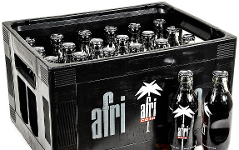Asahi
Asahi Expands in the U.S. Beverage Market
Asahi Group Holdings is expanding into the U.S. beverage market by emphasizing its premium offerings, including low-alcohol and nonalcoholic beverages. The company plans to make strategic investments so it can produce locally and experiment with new product categories. Its recent acquisition of Wisconsin-based Octopi Brewing is an example and will allow Asahi to produce its flagship Super Dry beer locally. Asahi aims to quadruple overseas sales of Super Dry by 2030. Consumer preferences in the U.S. beer market are shifting, with craft beer and beer-adjacent categories gaining traction. Brands are adapting to changing consumer behaviors, focusing on health and wellness trends, including low-alcohol and alcohol-free options. Asahi and other Japanese companies like Asahi Shuzo and Kirin, are making inroads with adult-targeted soft drinks and non- and low-alcohol offerings, leveraging positive association of Japanese alcohol products, especially after the success of Japanese whisky. Industry trends support Asahi's strategy, with the market for alcohol-free and low-alcohol beers surpassing $13 billion and projected to grow significantly by 2027 with the no-alcohol share of the overall alcohol market to reach nearly 4% by 2027.
Britvic
Tango Launches On-the-Go Ice Blast Flavours
Tango has a new offering, Tango Blast, with its Ice Blast flavours—Tango Raspberry Blast and Tango Cherry Blast—in a ready-to-drink format exclusive to the convenience channel. This launch targets Gen Z consumers with vibrant packaging and intense flavours. Tango has done well with consistent double-digit growth in the fruit flavoured carbonates category and the company expects this launch will create excitement and drive further growth. Tango Blast is vegan-friendly, free from artificial flavours or colours. The product will be available in 500ml bottles with an MRSP of £1.99, supported social media activations, PR, and in-store promotions.
Carlsberg
Carlsberg's First Global Brand Campaign
Carlsberg launched its first-ever global brand campaign across all 120 markets, focusing on the theme of curiosity as a driver of innovation and progress. The campaign aims to reinvigorate curiosity among beer drinkers worldwide. It will roll out in Europe, the UK, Asia, and South America throughout 2024 and 2025. It encompasses a fully integrated approach across various platforms, including cinema, TV, online video, PR, social media, and in-store activations. The campaign features a main brand film accompanied by over 100 flexible brand assets, prominently featuring the iconic 'hop' leaf from the Carlsberg logo. By featuring the historic Carlsberg Research Laboratory and its legacy of scientific achievements, the campaign underscores Carlsberg's commitment to continuous improvement and sustainability.
Companies
Carlsberg Reports Strong Q1 Organic Revenue Growth
Carlsberg had a robust 6.4% rise in Q1 organic revenue, driven by volume and revenue increases across all operating regions. Organic volumes rose 2.0% overall, on growth in its premium portfolio in markets such as China and Vietnam. In Western Europe, organic revenue grew 5.1%, while Asia and Central & Eastern Europe/India (CEEI) saw growth of 7.6% and 7.3%, respectively. Overall revenue reached DKK 17.1 billion. Q1 sales met expectations but FX impacts caused a slight EPS downgrade, although the overall outlook remains optimistic. Analysts at BofA and UBS commented positively on Carlsberg's performance, highlighting potential for upside in earnings and organic EBIT growth, particularly given strong subsidiary performance in China. The company announced a new DKK 1 billion share buy-back program and maintained guidance of 1% to 5% organic operating profit growth.
Suntory Oceania Signs Strategic Partnership with Celsius Energy Drink
Suntory Oceania announced an exclusive partnership with Celsius to introduce the US-based energy drink to the Australian and New Zealand markets. The collaboration aims to enhance Suntory's market position in the growing energy drink category. With energy drinks contributing significantly to overall beverage market growth in Oceania, Celsius presents a growth opportunity for Suntory. Celsius's product range claims clinically proven health benefits and natural formulations, which align with evolving consumer preferences for healthier beverage options.
Lotte
Lotte And Coca-Cola In The Sights Of Korea’s Antitrust Body
Coca-Cola and Lotte could find themselves in hot water after South Korea’s antitrust agency, the Fair Trade Commission, launched an investigation relating to price-fixing. FTC has seized documents after suspicions were raised that the companies colluded on pricing in an inflationary environment. The two companies are among several others being investigated from other categories, including food.
Suntory
Suntory PepsiCo Constructs Largest Factory in Asia-Pacific
Suntory PepsiCo Vietnam Beverage Company has commenced construction of its largest factory in the Asia-Pacific region, located in Long An province, Vietnam. With an investment exceeding $300 million and covering nearly 20 hectares, the factory aims to produce 800 million liters annually. The new facility will prioritize sustainability, utilizing renewable energy sources like biomass fuel and solar power to reduce greenhouse gas emissions. Additionally, the factory will adopt packaging made from recycled plastic and implement resource-saving initiatives in production, aligning with Vietnam's sustainability goals, including achieving net-zero emissions by 2050.
Copyright 2026 Business360, Inc.

